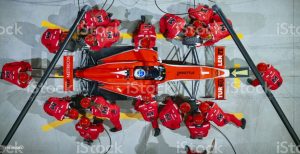This is new blog-Don’t miss out!
Lessons from soccer and hockey are applicable to business transformations

Global supply chain blogs
About the Author
 Vivek Sood: Sydney based managing director of Global Supply Chain Group, a strategy consultancy specializing in supply chains. More information on Vivek is available on www.linkedin.com/in/vivek and more information on Global Supply Chain Group is available www.globalscgroup.com
Vivek Sood: Sydney based managing director of Global Supply Chain Group, a strategy consultancy specializing in supply chains. More information on Vivek is available on www.linkedin.com/in/vivek and more information on Global Supply Chain Group is available www.globalscgroup.com
Vivek is the Managing Director of Global Supply Chain Group, a boutique strategy consulting firm specialising in Supply Chain Strategies, and headquartered in Sydney, Australia . He has over 24 years of experience in strategic transformations and operational excellence within global supply chains. Prior to co-founding Global Supply Chain Group in January 2000, Vivek was a management consultant with top-tier strategy consulting firm Booz Allen & Hamilton.
Vivek provides strategic operations and supply chain advice to boards and senior management of global corporations, private equity groups and other stakeholders in a range of industries including FMCG, food, shipping, logistics, manufacturing, chemicals, mining, agribusiness, construction materials, explosives, airlines and electricity utilities.
Vivek has served world-wide corporations in nearly 500 small and large projects on all continents with a variety of clients in many different industries. Most of projects have involved diagnostic, conceptualisation and transformation of supply chains – releasing significant amount of value for the business. His project work in supply chain management has added cumulative value in excess of $500M incorporating projects in major supply chain infrastructure investment decisions, profitable growth driven by global supply chain realignment, supply chain systems, negotiations and all other aspects of global supply chains.
Vivek has written a number of path breaking articles and commentaries that are published in several respected journals and magazines. Vivek has spoken at several supply chain conference, forums and workshops in various parts of the world. He has also conducted several strategic workshops on various aspects of supply chain management. He received his MBA with Distinction from the Australian Graduate School of Management in 1996 and prior to these studies spent 11 years in the Merchant Navy, rising from a Cadet to Master Mariner.
More information on Vivek is available on www.linkedin.com/in/vivek and more information on Global Supply Chain Group is available on www.globalscgroup.com
Learnings from Soccer and Indian hockey- for business
Back in the 1990s, coach Carlos Alberto Parreira was faced with a substantial challenge oftransforming the Brazilian National soccer team. Brazil had been infatuated with the wizardry of foot play and dribbling, which had resulted in a dry spell of World Cup titles despite fiery displays of skills. Coach Parreira recognized that soccer had ‘transformed’ by a huge marginon the global landscape since Brazil’s last creative zenith in 1970. As the sport became increasingly popular in Europe which had its own soccer philosophy, which seemed to counteract Brazil’s individualistic and improvisational style.

Coach Parreira realized that the time had come for a total transformation of the Brazilian team. He knew that the previous methods of Pelé were no longer working, and that a new outlook was needed. The team had to move from an individualistic style of playing to a network style game. In 1994, Brazil finally won their fourth World Cup champion title, marking a highly celebrated success. The new rules were set – minimize the individual wizardry of foot play, dribbling and nimble dexterous touches, and replace these with teamwork and a cohesive network of players.
This transformation of soccer provides valuable lessons for any business. Just as soccer changed on the global landscape, businesses must also adapt to the constantly evolving market. Companies can no longer afford to play the game of business on their own like a Pelé. Instead, businesses must come together in a network of companies, and pass information and material to each other at various points. This creates a wizardry that allows companies to outsmart their competitors in the marketplace. Every company does this, but only those that are most skilful at it win.
Similarly, India’s field hockey team provides us with a lesson on what not to do when it comes to business transformation. At one stage, India was the top team in field hockey in the world. However, as the way of playing hockey changed from individual wizardry with a stick to a network of players playing in formations, passing a ball rapidly to each other in order to outwit their opponents. Indian hockey players, coaches, administrators, and other staff members failed to get their act together. Despite being a national sport, field hockey has failed to re-capture its glory. From being a default player in every final of hockey, India is nowhere to be seen on the world’s hockey map today.
The lesson for businesses is clear – companies that fail to adapt and transform risk falling behind and becoming irrelevant. Businesses must be willing to change, to embrace new methods and approaches, and to be open to new ways of thinking. They must be proactive in identifying and responding to market trends, and be willing to take risks to stay ahead of the competition.
Conclusion

The lessons from soccer and hockey are highly applicable to business transformation. Businesses must learn from the successes and failures of these sports to adapt and thrive in a constantly changing market. Companies must come together in a network, pass information and material to each other, and create a wizardry that allows them to outsmart their competitors in the marketplace. They must also be willing to change, embrace new methods and approaches, and be proactive in identifying and responding to market trends. By doing so, businesses can stay ahead of the game and achieve success in the long term.
Introducing.....

The global supply chain of products is an immense and complex system. It involves the movement of goods from the point of origin to the point of consumption, with intermediate steps that involve resources, materials and services to transport them. A supply chain encompasses activities such as purchasing, production, distribution and marketing in order to satisfy customer demands. Companies rely on a well-managed supply chain to meet their business goals by providing quality products and services at competitive prices.
Efficiently managing a global supply chain requires considerable effort, particularly when dealing with multiple suppliers located around the world. Complex logistics tracking systems are needed to monitor product movements from one place to another. Technologies such as artificial intelligence (AI) can help companies keep track of shipments across different locations for greater visibility into their processes.
what did Our Reader say?

GARRY BADDOCK
Chief Operating Officer Graphite Energy
I have experience with many of the well-known top-tier strategy firms but chose Global Supply Chain to support me on my supply chain projects. They always meet and exceed my expectations due to the quality of the work, the ability to work collaboratively with internal teams, and the flexibility to adjust the project approach when required.

PHILLIPPE ETTIENNE
CEO - Large Global transnational corporation From: FOREWORD - OUTSOURCING 3.0
When I engaged Vivek’s services for supply chain transformation in one of the companies I was heading, we expected the careful and methodical approach that he was famous for... I was pleased to note that the original target set for 3 years was surpassed by almost 70% in just 18 months.

TONY FEDOROWICZ
Vice-President Supply Chain Asia Pacific
I have used their services for several business transformations and workshops in many companies. Each time an outstanding workshop and project result was delivered ensuring the success of the business transformation project. Savings surpassed $25 Million per annum in one case. Very powerful ideas, were implemented very diligently.

Jean-Briac Le Dean
Co-Founder & Agen
Vivek is a very collaborative and open leader who leads teams by example. Whether internal teams, or clients teams, all are impressed by his intensity, energy level and drive to make things a little better.

Lorna Calder Johnson
Omni-Channel Product Marketing
P & L Executive
Vivek's transformation expertise is apparent from his results and dedication to operations and supply chains. His strategic expertise, knowledge and network make him a standout even among an excellent team.
Related Posts
Click below to see related posts.

The Impact of Plummeting Shipping Container Prices Across Industries
Explore the far-reaching consequences of plummeting shipping container prices on diverse industries, revealing the intricate connections shaping global trade, supply chains, and economic landscapes.

Race Day Logistics: Intricacies of Pit Stop
Explore the race day’s heartbeat: the art of pit stops. Uncover the intricate logistics orchestrating split-second tire changes, refuels, and strategy adjustments that define Formula 1’s high-speed drama.

Mastering Travel Logistics in Formula 1 Racing
Discover the art of flawless travel logistics in the high-speed world of Formula 1. Uncover how precision planning and real-time coordination keep teams on track across the global circuit.
